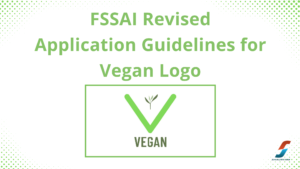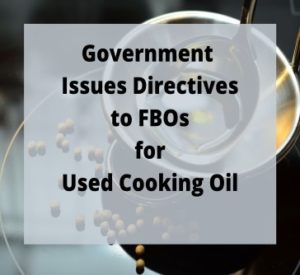FSSAI has issued directions dated 7 January 2021 regarding enforcement of maximum limits of trans fatty acids in Vegetable Oil/Fats products under Food Safety and Standards (Food Product Standards and Food Additives) Tenth Amendment Regulations, 2020.
FSSAI has invited reference to the Food Safety and Standards (Food Product Standards and Food Additives) Tenth Amendment Regulations, 2020, which was gazette notified on 29 December 2020, which inter alia stipulates that vegetable oils/fats products as mentioned in the said notification “shall not contain trans fatty acids more than 5% by weight: Provided that maximum limit of trans fatty acids shall not be more than 3% by weight, on and from 1st January 2021 and not more than 2% by weight, on the 1st January 2022.
In view of the representations received from the industry by FSSAI in this regard and to facilitate a smooth transition for the industry to the new norms for trans fatty acids (TFAs) FSSAI has directed that the enforcement of the TFA limit 3% by weight shall commence with effect from 1st April 2021 and for such products manufactured on or after 01 April 2021. Also, no enforcement action shall be initiated for TFA limit of 3% for the said products manufactured before 01 April 2021 for enforcement of the said limit.
FSSAI has further clarified that with respect to the provision that the TFA shall not be more than 2% by weight, on and from 1st January 2022, the said limit shall be enforced only on the products manufactured on or after 1st January 2022 and not before the said date.
About Trans Fatty Acids
Trans fats have been linked to heart diseases, overweight/obesity, high blood pressure, diabetes and some types of cancers and so FSSAI has set a goal of reducing trans fats in foods.
As is well known the sources of trans fat can be natural or artificial
Natural trans fats are also called ruminant trans fats, as they are present in small quantities in meat and dairy products obtained from ruminant animals such as cows, sheep and cattle. Natural/ruminant trans fat is not generally considered harmful.
Artificial trans fat is also called industrial trans fat as they are manufactured industrially by a chemical process of partial hydrogenation or thermal treatments of edible oils containing unsaturated fatty acids, e.g., refining of vegetable oils and during the process of frying. They are generally considered harmful.
Artificial/industrial trans fat is present in large quantities in partially hydrogenated vegetable fats (vanaspati, margarine and bakery shortenings). In prepared foods, trans fats are found in:
Bakery products: Biscuit, fan, rusk, cake etc.
Bhatura, poori, pakora, bhujiya, fried savoury mixtures (namkeens) etc.
Re-heated oils: Small amounts of trans fats are also formed when the same cooking oil is used for repeated frying; not only at commercial outlets but even at household levels.
Recognizing the health hazards associated with consumption of industrial trans fats, FSSAI intends to eliminate trans fat from the diet in a phased manner by 2022. Therefore, FSSAI has employed two-pronged strategies to achieve its goal of “Freedom from Trans Fat @75.”
FSSAI has notified several crucial regulations to regulate trans fat in industrial products, encouraged edible oil industry and food business operators to eliminate trans fat from their products.
FSSAI has launched a mass media campaign “Heart Attack Rewind”- a 30-second Public Service Announcement (PSA) with the aim to create awareness about the harmful effects of trans fat by
Reducing acceptability of industrially produced (IP) trans fat in foods
Building public support for government action to eliminate IP trans fat





